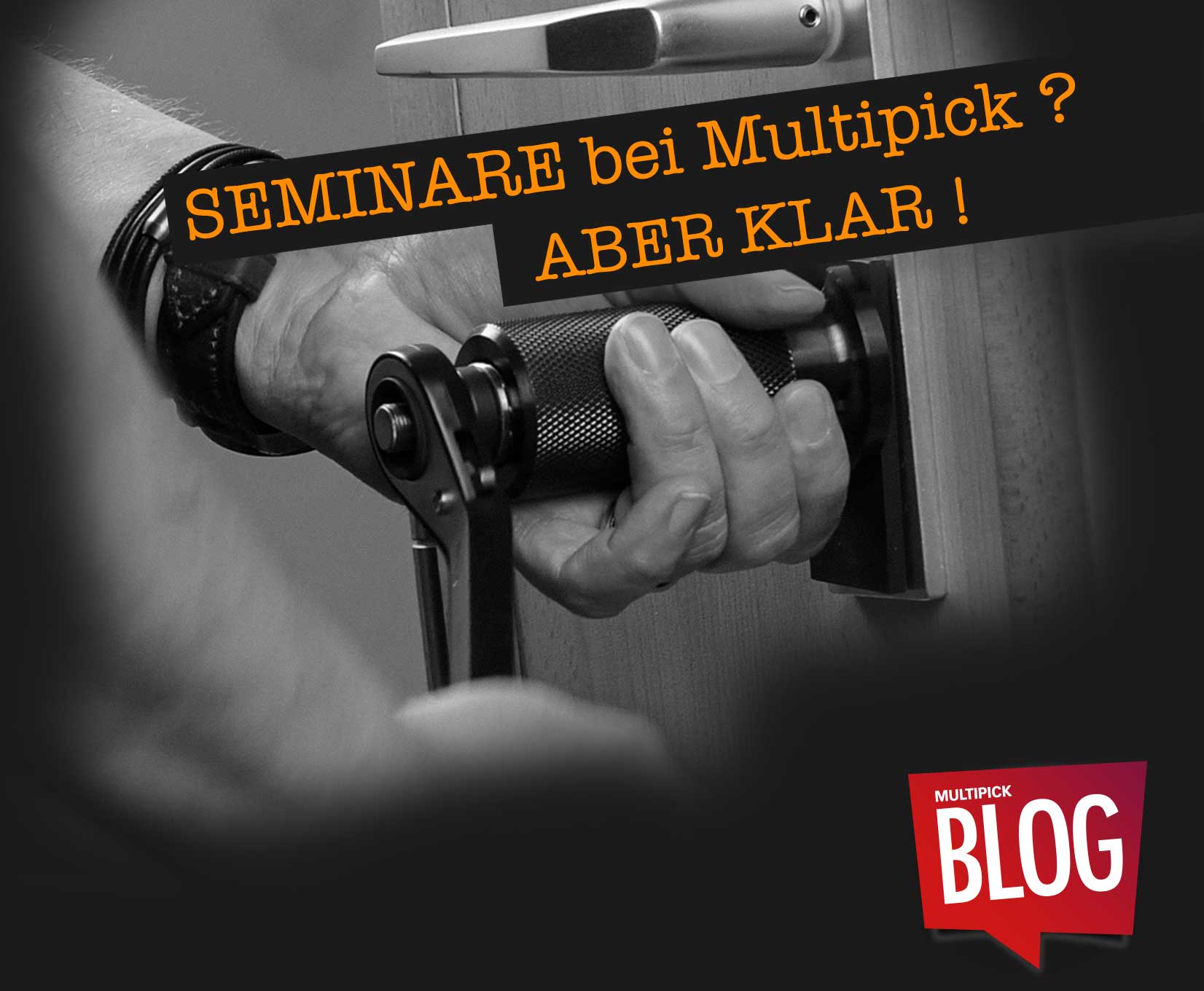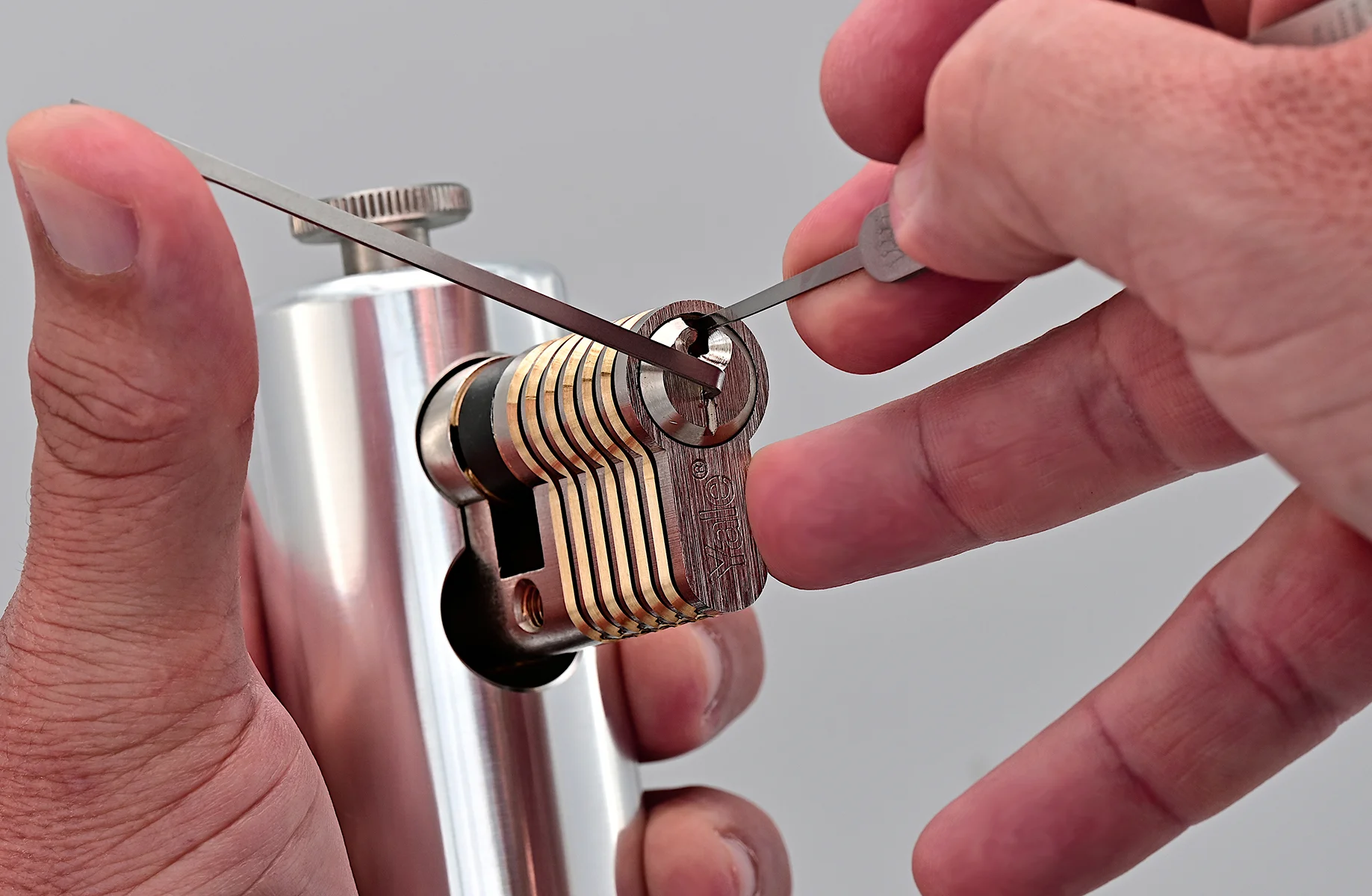
Reading time: 8 minutes / Lars Buchwald / June 27, 2025
Lockpicking in the EU: Differences in National Laws – and What Really Happens
Table of Contents
→ Multipick stands for responsibility – lockpicking tools must never be used for criminal purposes
→ Germany: When a pick set belongs next to the barbecue
→ Austria: Technology, yes – secrecy, no
→ France: When a toolbox looks suspicious
→ Spain: From practice lock to police response
→ Italy: From maker festival to police inspection
→ Poland: Technically legal – but barely known
→ What we learn from this: Responsibility makes all the difference – across Europe
→ Explanation & sources
At Multipick, we stand by a clear principle that applies to all of our tools: Lockpicking is a fascinating hobby that requires finesse and offers endless possibilities. It demands skill, patience, and solid knowledge of how locks and cylinders work. For us, lockpicks also belong in the toolkit of locksmiths, security professionals, training institutions, and tech enthusiasts.
Multipick stands for responsibility – lock opening tools must never be used for criminal purposes.
What we reject – clearly and without exception – is the criminal misuse of these tools. Any illegal use goes directly against our ethical values and will not be tolerated. We strongly advocate for responsible, lawful use. Anyone acting otherwise is not representing our vision – nor the spirit in which our products are developed.
In this article, we take an educational – and occasionally slightly quirky – look at the legal differences surrounding lockpicking across the EU. And one thing becomes very clear: it's not the tool that causes trouble – it's how and where it's used.
A Look at Germany and Its Neighbors
Germany: When a Pick Set Belongs at the BBQ
In a Berlin park, a small group of curious tech enthusiasts gathered. On the picnic table: practice locks, pick sets, and plenty of lockpicking talk – all completely legal, open to the public, and more workshop than secret mission. But not everyone saw it that way. Some passersby viewed the gathering as “burglary training for advanced users – now outdoors and free!” Shortly after, the police showed up – with questions, a look at the gear, and a few raised eyebrows. In the end: no crime, no threat, just a bunch of nerds with locks. The officers drove off – likely with a story to tell back at the station about what you now see in Berlin’s green spaces.
Legal situation in Germany: Possessing and using lockpicking tools is legal, as long as there’s no criminal intent. According to § 202c of the German Criminal Code ("Hacker Paragraph"), preparing to gain unauthorized access is only punishable if linked to an actual breach – meaning: if you're using tools lawfully or for practice, you're not breaking any laws.
Important: Public appearances still require good judgment – transparency and context matter. Legal source: § 202c StGB – German Ministry of Justice
Austria: Tech is Fine – Secrecy is Not
During a train ride through Styria, an unusual luggage check occurred: a sniffer dog – actually trained to detect drugs – reacted to a backpack. What the officers found was no contraband, but a practice lock and a lockpick set. The owner, an aspiring lockpicker with a passion for the craft, quickly explained what it was. The officers remained calm, verified the story, and returned the equipment. Key point: the tools were visibly and innocently stored – not hidden in a secret pouch or an aluminum case with a combo lock.
Legal situation in Austria: There are no specific laws banning the possession or use of lockpicking tools. However, what matters is the “intellectual proximity to the crime.” If you can credibly show it’s for a hobby or educational use, there’s usually no issue. Hidden tools or suspicious behavior, however, may trigger concern.
Legal source: Legal Information System of the Republic of Austria – RIS
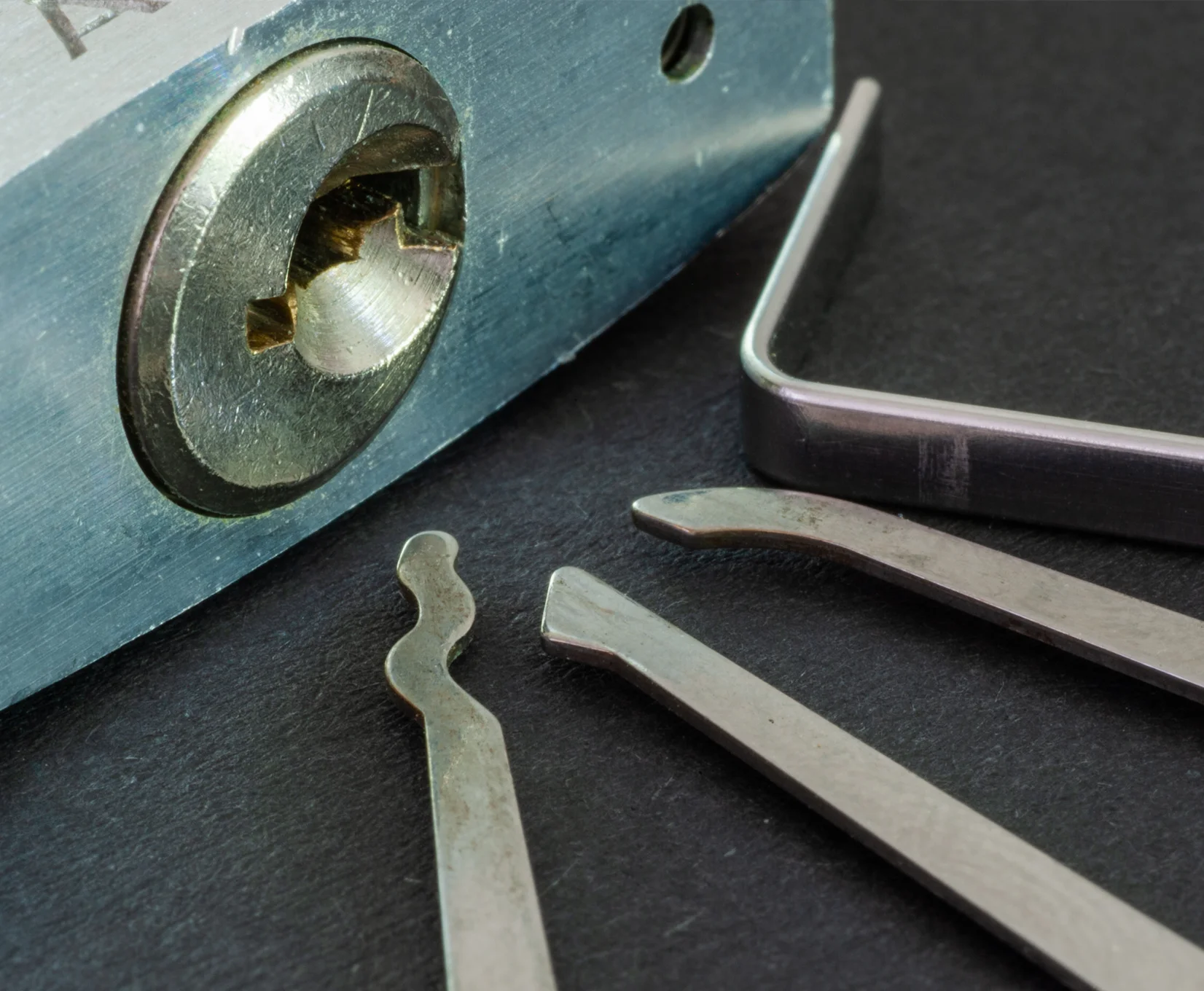
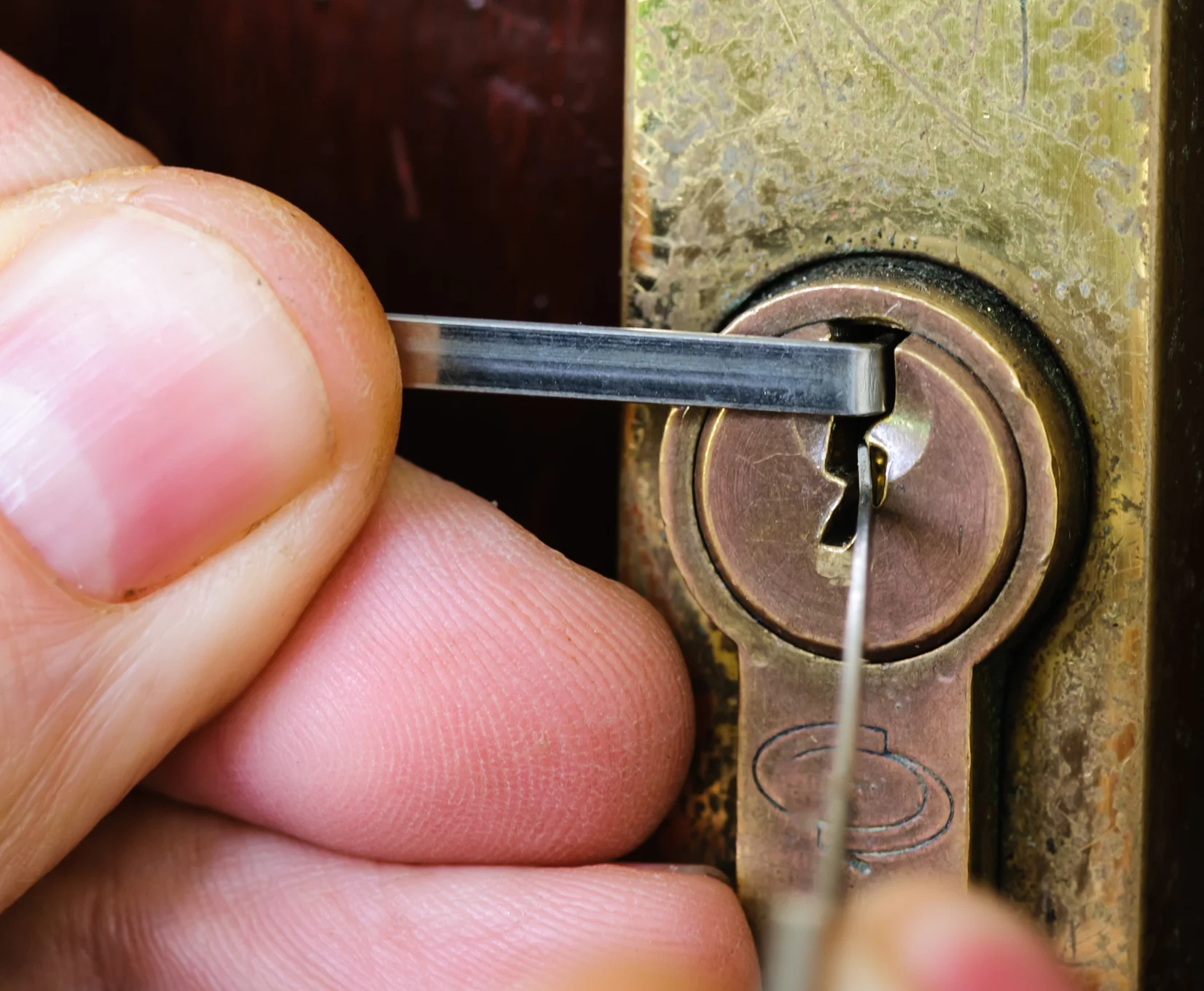
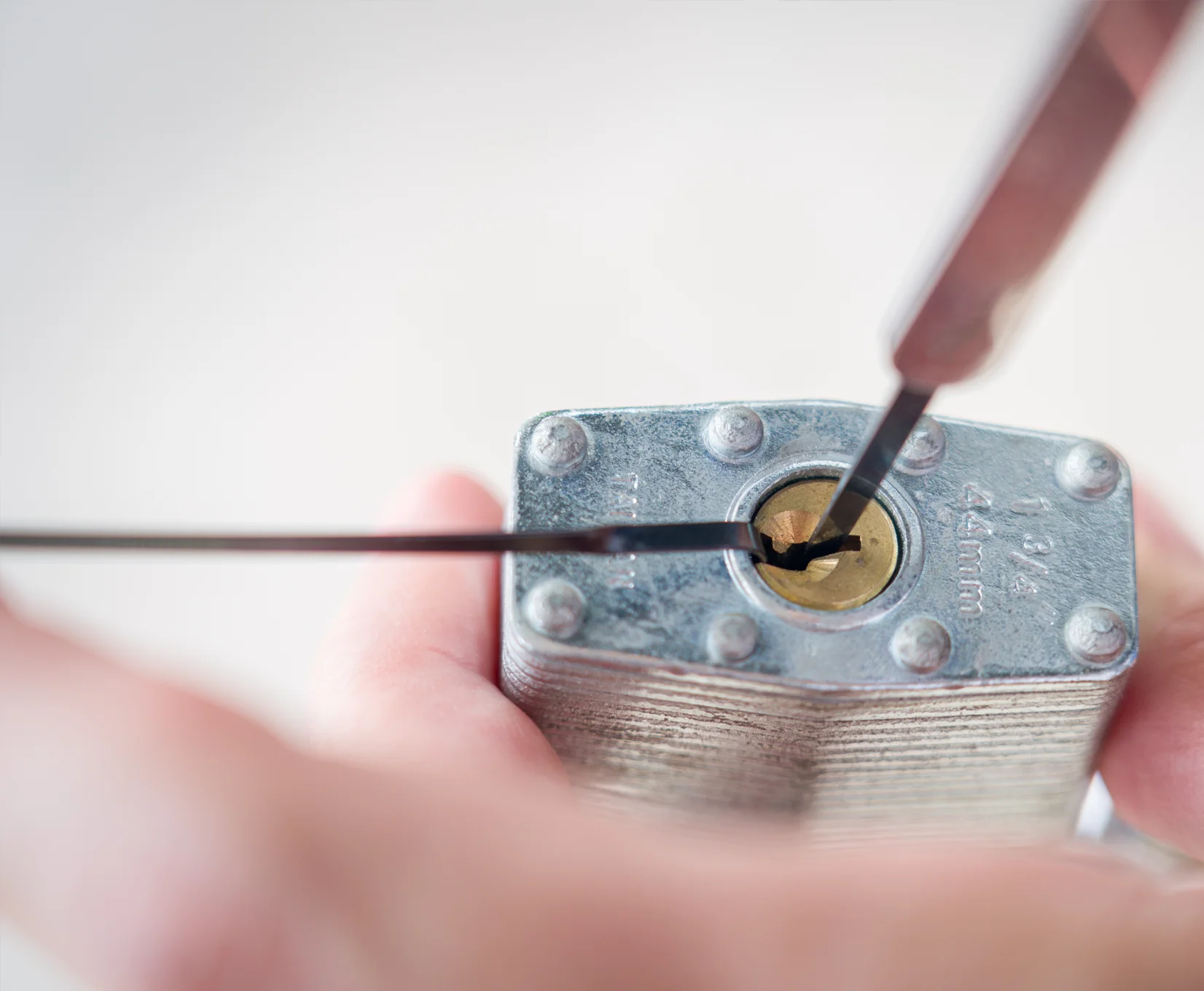
France: When a Toolbox Looks Suspicious
Paris, Gare de Lyon: A tech-savvy tinkerer caught the attention of security staff. In his luggage: a neat toolbox containing lockpicks, tension tools, and practice locks. For those in the know, harmless – but for the security team, it looked like a scene straight out of “Mission: Impossible.” After a thorough inspection, follow-up questions, and a close look at his ID and train ticket, it was clear: no criminal intent, just a traveling lockpicker.
Legal situation in France: Possession of lockpicking tools is not explicitly prohibited, but carrying them in public can be considered preparation for burglary. The law is vague and open to interpretation. To be safe, it’s best to carry written proof – such as a professional ID or club membership certificate.
Legal source: Code pénal – Légifrance
Spain: From Practice Lock to Police Involvement
Valencia, hotel lobby with the smell of fresh coffee and toast: A lockpicker is showing his friend a new practice lock – enthusiastically, with hands-on detail. Fascinating for the friend, but suspicious to the hotel manager. A quick call to the police follows, keywords: “tools,” “lock,” “suspicious.” Two friendly officers arrive, a short conversation, the receipt is shown – case closed.
Legal situation in Spain: There are no specific laws against possession, but lockpicks are considered potential burglary tools. Context matters: without a legitimate reason – especially at night or in sensitive areas – you could run into legal trouble.
Legal source: Código Penal – BOE.es (Spanish Ministry of Justice), Art. 18.1
Italy: From Maker Festival to Police Check
A visitor to a maker festival in Bologna was stopped the next day with a practice lock set in his backpack. After a brief explanation, there were no objections from the authorities.
Legal situation in Italy: Carrying such tools may be considered “preparation for burglary” under Articles 707–708 of the Italian Penal Code. The decision is left to the discretion of local authorities. If you can credibly explain a legitimate, legal use, you're usually in the clear.
Legal source: Codice Penale – Normattiva.it
Poland: Technically Legal – But Not Widely Known
At a tech expo in Kraków, a lockpicking booth was relocated – out of fear that it might be “showing something illegal.” In the end, everything was officially approved – a clear example of how public perception often lags behind the actual legal framework.
Legal situation in Poland: Possession and use are legal as long as there is no intent to commit burglary. However, practicing in public may draw attention.
Legal source: Kodeks karny – isap.sejm.gov.pl
What We Can Learn:
Responsibility Makes the Difference – Across Europe
Lockpicking is not generally banned in most EU countries. What matters is the context and your intent. Anyone who owns lockpicking tools should be familiar with the specific national laws. Legality ends where criminal intent begins. Responsible use – whether in training, as a hobby, or for educational purposes – is often unproblematic. But without proper explanation or in the wrong setting, it can lead to misunderstandings or even legal consequences. It's not just about having the right tool, but about how and why you use it. If you're into lockpicking, you carry an ethical responsibility – to yourself and to society.
Explanation & Sources
This article is based on publicly documented situations, real events from seminars, trade shows, and technical forums. All legal interpretations were researched using official national laws as of June 2025. Humorous elements are intended to illustrate the topic, without compromising the seriousness of the legal background.
Source overview: All legal references listed under each country are taken directly from official legal texts or government portals.
FAQ: Lockpicking and the Law in Europe – What You Should Know
1. Is the possession of lockpicking tools allowed in all EU countries?
No, not across the board. In many EU countries, simple possession is legal as long as there’s no criminal intent. However, carrying tools in public can be problematic—or even illegal—depending on the country. France, Italy, and Spain, in particular, place strong emphasis on context.
2. What counts as “criminal intent” when it comes to lockpicking?
Criminal intent exists when lockpicking tools are clearly used—or prepared—for the purpose of committing a break-in. It's up to law enforcement to prove that intent, but suspicious behavior or secretly carrying tools can quickly lead to misunderstandings.
3. Am I allowed to practice lockpicking in public places in Germany, like a park?
Generally, yes—provided it’s clear that your activity is legal and not tied to any criminal intent. Still, be mindful of your surroundings: transparency (such as offering information or being open to conversation) and respectful conduct can help avoid issues with police or bystanders.
4. What documents can help me if I get stopped by police?
Helpful documents include:
– a purchase receipt,
– an official certificate of training or club membership,
– a letter from your employer (for professional use),
– or even a printout of this blog article 😉 – to help explain the legal context.
5. How can I clearly distinguish myself as a hobbyist from a burglar?
By being open and providing context:
– Use clearly visible practice locks.
– Document your activities (e.g. through forums or training groups).
– Avoid secretive or “spy-style” presentations.
– Don’t use hidden compartments or “agent cases”—they can appear suspicious.
6. Are there any EU-wide regulations for lockpicking?
No. Criminal law is handled individually by each EU member state. There is no unified EU regulation regarding the possession or use of lockpicking tools. If you're traveling, you should always check the legal situation in your destination or any transit country.
7. Which lockpicking activities are especially risky in public?
The following situations carry a higher risk:
– Practicing near someone else’s buildings or vehicles
– Doing lockpicking activities outdoors at night
– Carrying tools in high-security areas (e.g., airports, train stations)
– Hiding tools (e.g., in false-bottom bags or locked cases)
8. Can I list lockpicking on my resume or portfolio?
Yes, definitely—especially in contexts like:
– Cybersecurity (as the physical counterpart to penetration testing)
– Mechatronics or STEM education
– Hands-on vocational or technical training
When presented professionally, it shows precision, patience, and technical skill.
9. What does Multipick recommend regarding lockpicking tools?
Multipick promotes responsible use of technology. That means:
– Only legal and ethically appropriate applications
– Education over secrecy
– No glorification of burglary or illegal "challenges"
– Tools should be in qualified hands—whether hobbyist or professional
10. What happens if I'm caught with lockpicks abroad—even with good intentions?
You should expect your intentions to be questioned. What happens next often depends on how you present yourself, the context, and your cooperation. Stay calm, explain your purpose, and provide proof if possible. In the worst case, the tools may be confiscated—rarely does it lead to charges, but it depends on the country and situation.
About the Author
Lars Buchwald has been an integral part of the Multipick team since 2006, where he dedicates his passion and expertise to marketing and graphics. As a trained graphic designer and copywriter, he brings a wealth of experience and creativity to his work, which enables him to convey the messages of the ingenious tools in an appealing and convincing way. With a keen sense for the needs of the target group, he steers Multipick's marketing fortunes. His commitment is characterized by a high degree of sensitivity and the right richer at the right time.
As a native of Bonn, Lars not only has close ties to the region, but has also firmly integrated his passion for marketing spear tools into his professional work. His attachment to the city is reflected in his work and gives his marketing campaigns an authentic, Bonn touch.
Related Articles
Jetzt Neu – Multipick Seminare
Professionelle Türöffnungsseminare – Schulungen für Feuerwehren, Schlüsseldienste und Hausmeister.
About Multipick
Multipick was established here in Bonn in 1997 and has had its headquarters and production facilities here on the Rhine ever since.
Why should we leave here? Anyone who has been here before will agree that it is a very beautiful place and that the people are ‘typically Rhineland’, open-minded and friendly. From an early stage, we began to occupy ourselves with a wide variety of entry tools. We tried out lock snappers and core extractors such as the Bell and gathered a wealth of experience with a wide variety of tools. Whether it was a lock pick set or special tools for fire brigades and locksmiths, in the end the door or window had to be opened. In line with the motto, you got the problem and we got the solution.
Many tools, irrespective of hobby or professional, are dispatched from our warehouse to destinations throughout the world.
Opening tool kits for caretakers and locksmiths, pick sets and lock picking accessories for Locksport enthusiasts and Hobbs hooks for specialists to unlock locked safes. There are thousands of different ways to deploy our specialised tools. Our TFG latch plates and key turners allow a closed door to be reopened. QA Pro 2 and our V-Pro core pulling screws can be used to open a locked door. We also offer milling burrs and drill bits for those situations where there really is no other way. Many useful aids such as MICA opening cards, wedges, door latch spatulas, door handle catches and spiral openers, which are all useful tools to help you get the job done. But even if things get a bit complicated, you are in good hands with us. Products such as the Kronos and Artemis electric picks are our top highlights. Anyone who likes to open dimple locks or disc locks will be delighted with the ARES system. For opening windows, we offer you a range of top products from Kipp-Blitz. Favoured by emergency services such as the fire brigade, THW (Federal Agency for Technical Relief) and police. Many of our tools are manufactured in-house. This gives us the liberty to manufacture quickly and in a customer-orientated manner. No lengthy supply chains and subcontractor dependencies. This has a number of advantages both for you and, of course, for our environment. One big advantage is that you get everything from a single source, enabling us to offer you consistent quality. This is also our promise to you, all from a single source, Made in Germany, Made in Bonn - promised.




































